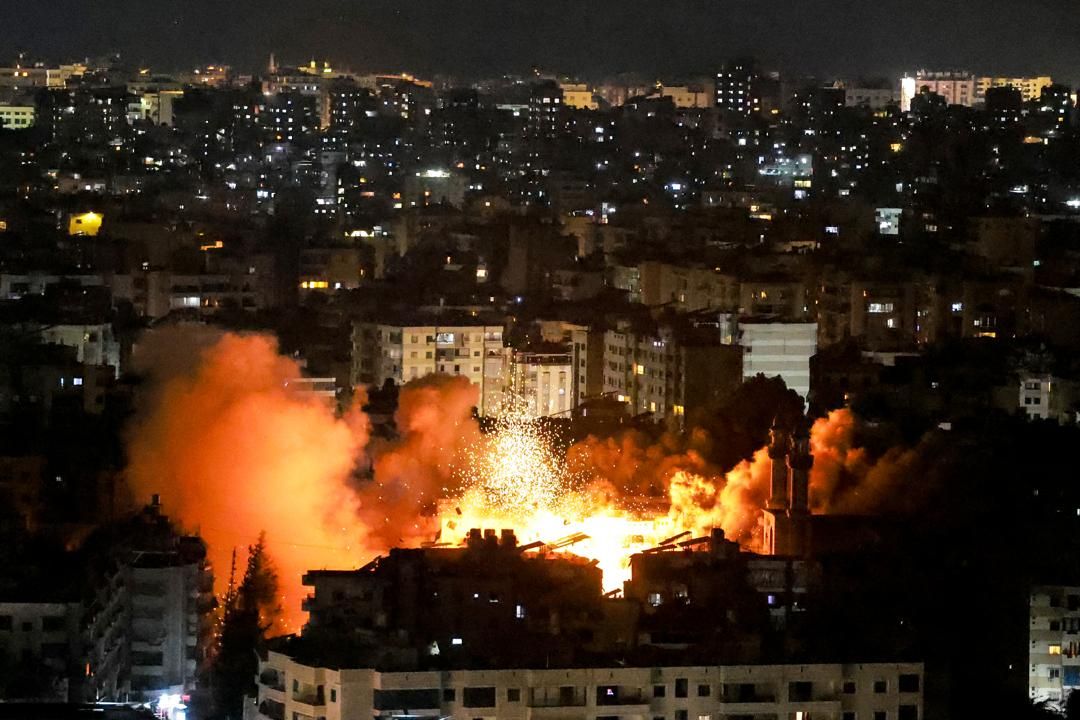- Home
- War in the Middle East
- Iran-Israel Conflict: Day 3

©AFP
Israel launched new strikes on Sunday targeting Iran’s nuclear program, to which Iran responded with missile attacks that killed at least eight people on Israeli territory — marking the third day of an unprecedented military escalation between the two enemy nations.
Israeli Prime Minister Benjamin Netanyahu stated that he intends to strike "all regime sites" as part of his attack against the Islamic Republic, which began Friday morning with the objective of preventing Iran from acquiring nuclear weapons.
On Sunday morning, the Israeli army announced that it had targeted sites "linked to the Iranian regime’s nuclear weapons project," including the Ministry of Defense and the headquarters of the Organization of Defensive Innovation and Research, also known by its Persian acronym, SPND. Several explosions were heard in the capital, according to AFP journalists.
According to Iran’s Tasnim news agency, one of the ministry buildings was "slightly damaged."
Two fuel depots were also struck. "The Shahran oil depot (in northwestern Tehran) and another tank in the south (of the city) were targeted by the Zionist regime," the Petroleum Ministry stated overnight. The Shahran depot was engulfed in flames, according to an AFP reporter.
"Tehran is burning," Israeli Defense Minister Yoav Gallant commented Sunday morning on X.
Iranian Retaliation
In response, Iran launched two waves of missile strikes on central and northern Israel, resulting in at least eight deaths and more than 130 injuries since Saturday night, according to Magen David Adom, Israel’s equivalent of the Red Cross. Around twenty people remain missing as rescue operations continue in Bat Yam, a suburb of Tel Aviv hit by Iranian missiles.
Image des missiles iraniens ayant ciblé #TelAviv dans la nuit de samedi à dimanche. pic.twitter.com/FRh1xHDQEI
— Ici Beyrouth (@Icibeyrouthnews) June 15, 2025
The Iranian strikes, carried out using drones and missiles, specifically targeted combat aircraft refueling installations, according to the Islamic Revolutionary Guard Corps (IRGC), the ideological army of the Islamic Republic.
A close ally of Israel, US President Donald Trump had on Friday urged Iran to reach a deal with the United States on its nuclear program, as a new round of indirect talks was scheduled for Sunday in Oman. However, Muscat announced on Saturday that the discussions would not take place, with Iran accusing Israel of undermining the process.
Commenting on the latest developments in the conflict, Trump stated on Truth Social that the United States was "in no way involved in the overnight attack on Iran," warning Tehran that any assault on the U.S. would provoke a military response "on a scale never seen before."
He did, however, affirm that a deal between Iran and Israel is possible to put an end to this “bloody conflict.”
Des images préliminaires montrent les destructions à #BatYam, au sud de #TelAviv, après des tirs de missiles iraniens. pic.twitter.com/Knq9nbOLrw
— Ici Beyrouth (@Icibeyrouthnews) June 15, 2025
Since Friday, Israel — claiming that Tehran is approaching the "point of no return" on its path to nuclear weapons — has targeted hundreds of Iranian military and nuclear sites, killing several military officials and nuclear program scientists.
The Israeli strikes also killed some of the country’s top-ranking officials, including the head of the Revolutionary Guards, General Hossein Salami, the commander of the Guards’ Aerospace Force, Amirali Hajizadeh, and the Chief of Staff, General Mohammad Bagheri. Nine scientists from Iran’s nuclear program were also killed.
Iran has reported at least 78 dead and more than 320 wounded, "the vast majority of them civilians."
Iran's airspace has been closed until further notice, according to the official IRNA agency. In Israel, Ben Gurion International Airport near Tel Aviv is also shut down.
Read more



Comments